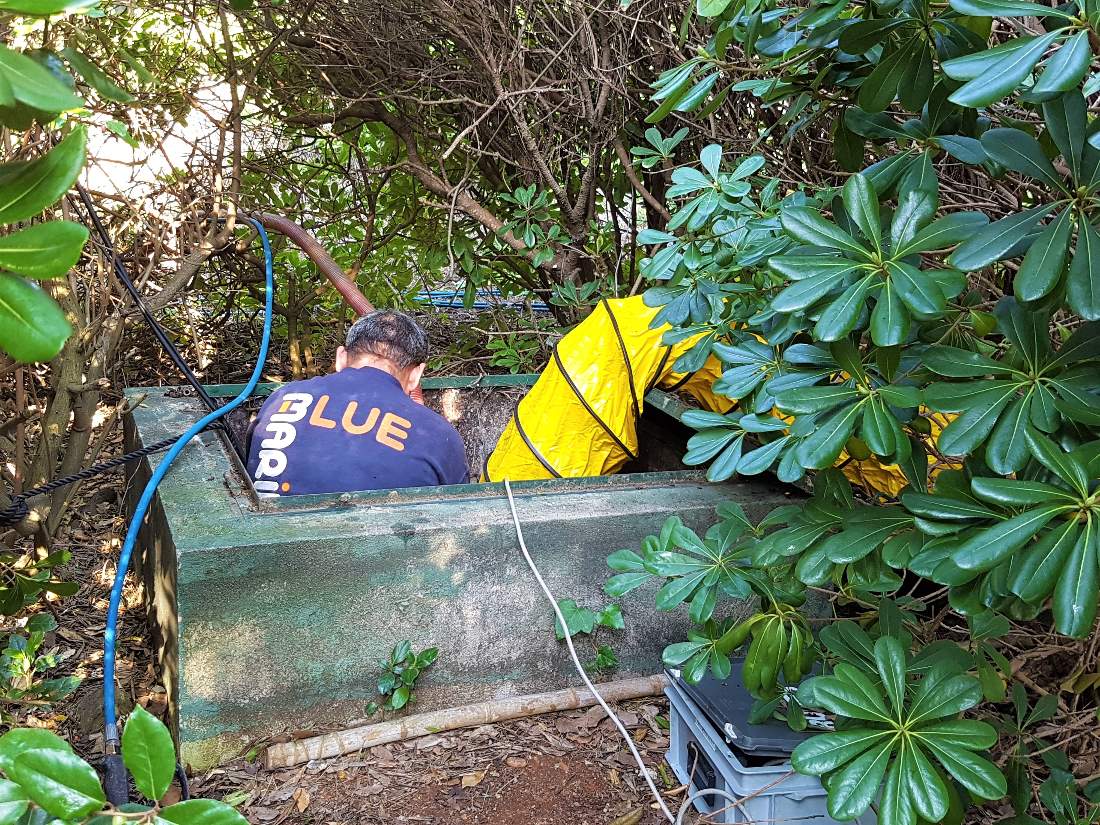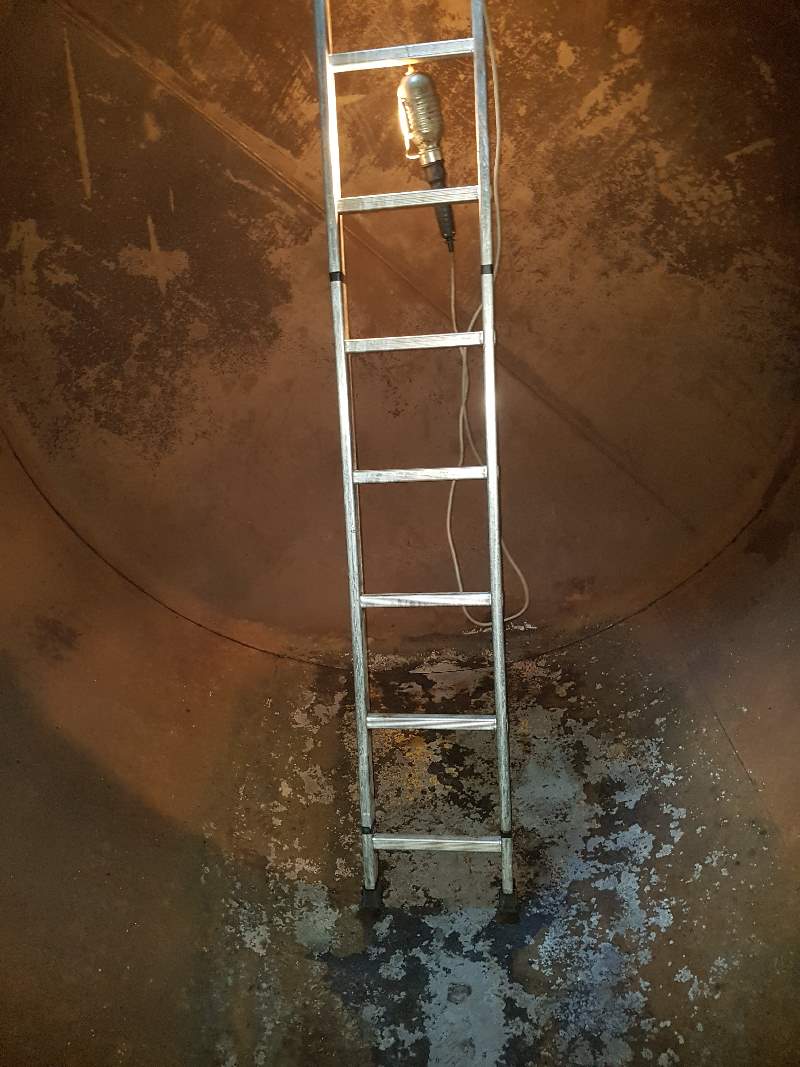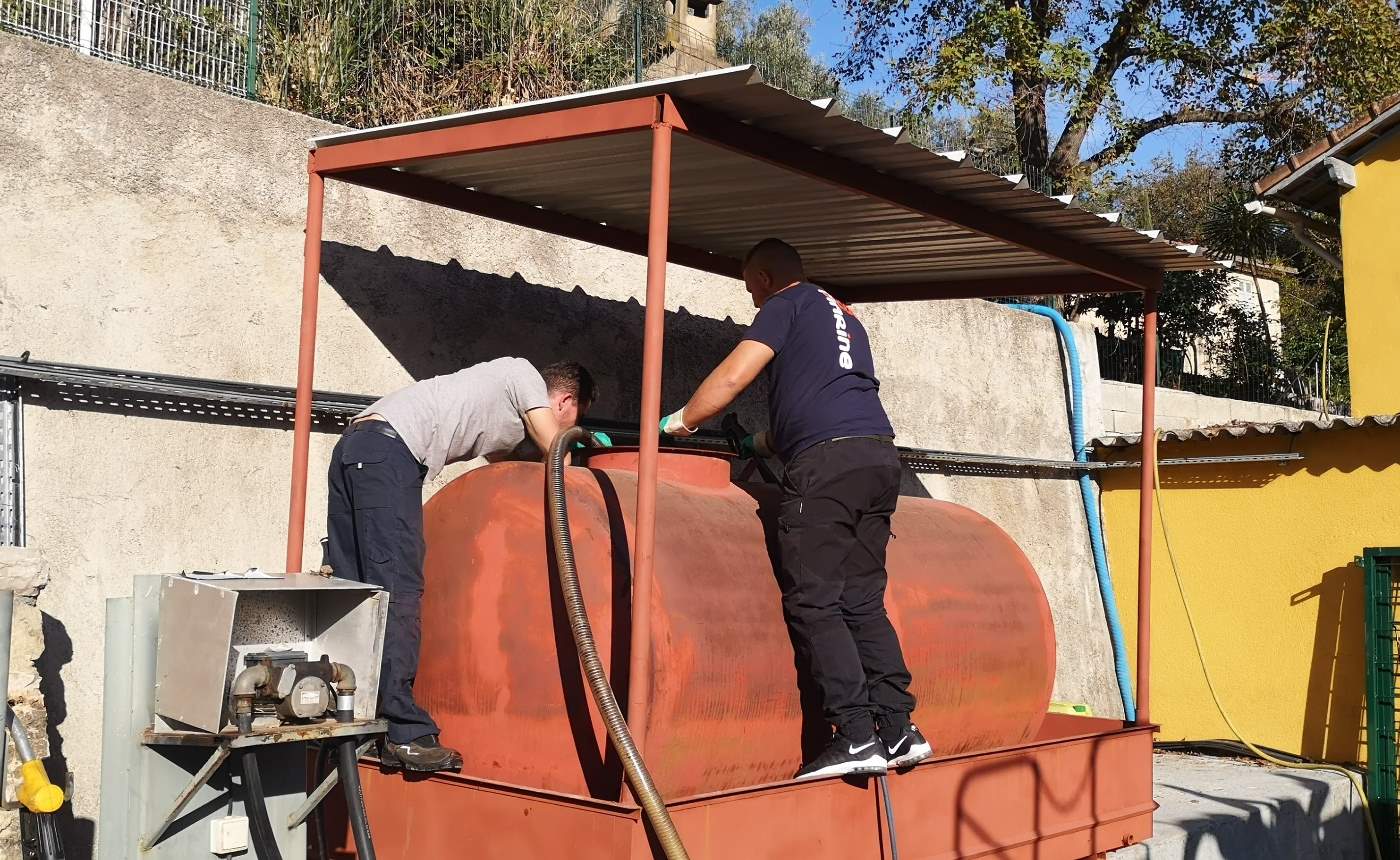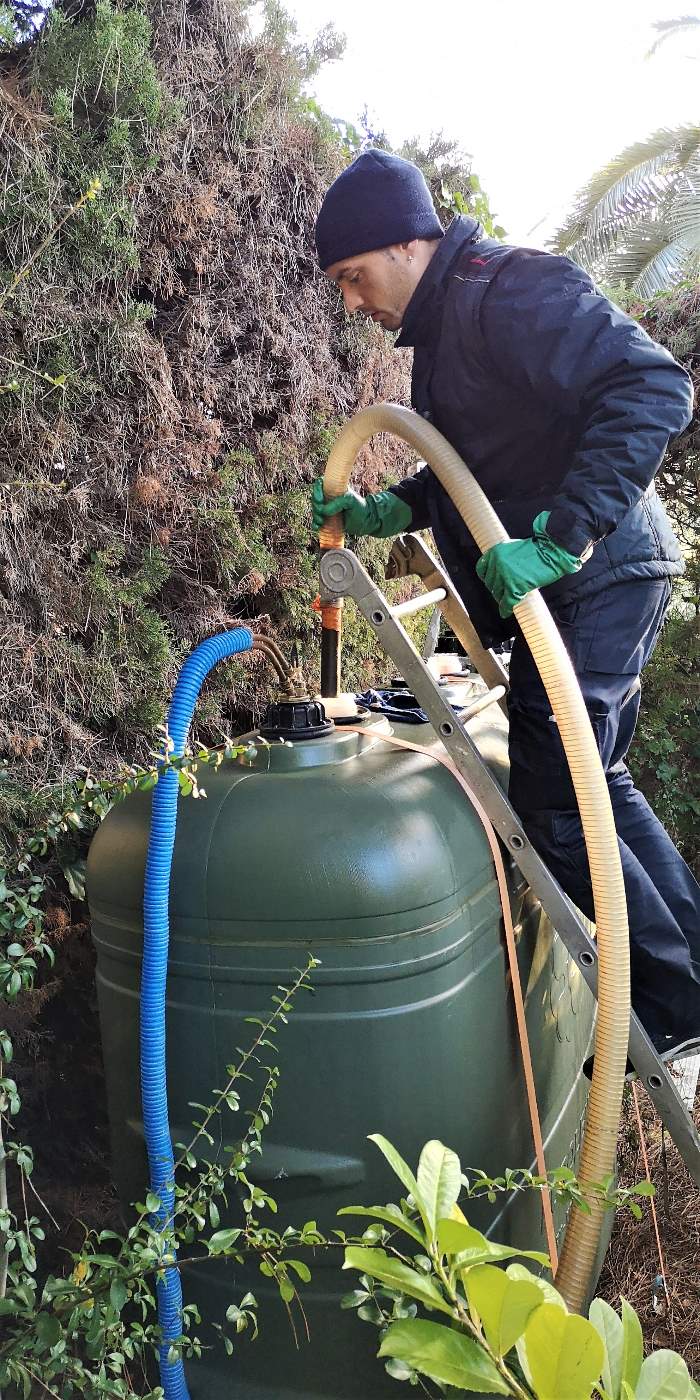Cleaning : Domestic Fuel tanks
Domestic fuel tanks are favourable to the development of microorganisms. Indeed, bacteria and fungi may develop and multiply,
especially when water is present. (Condensation phenomenon).
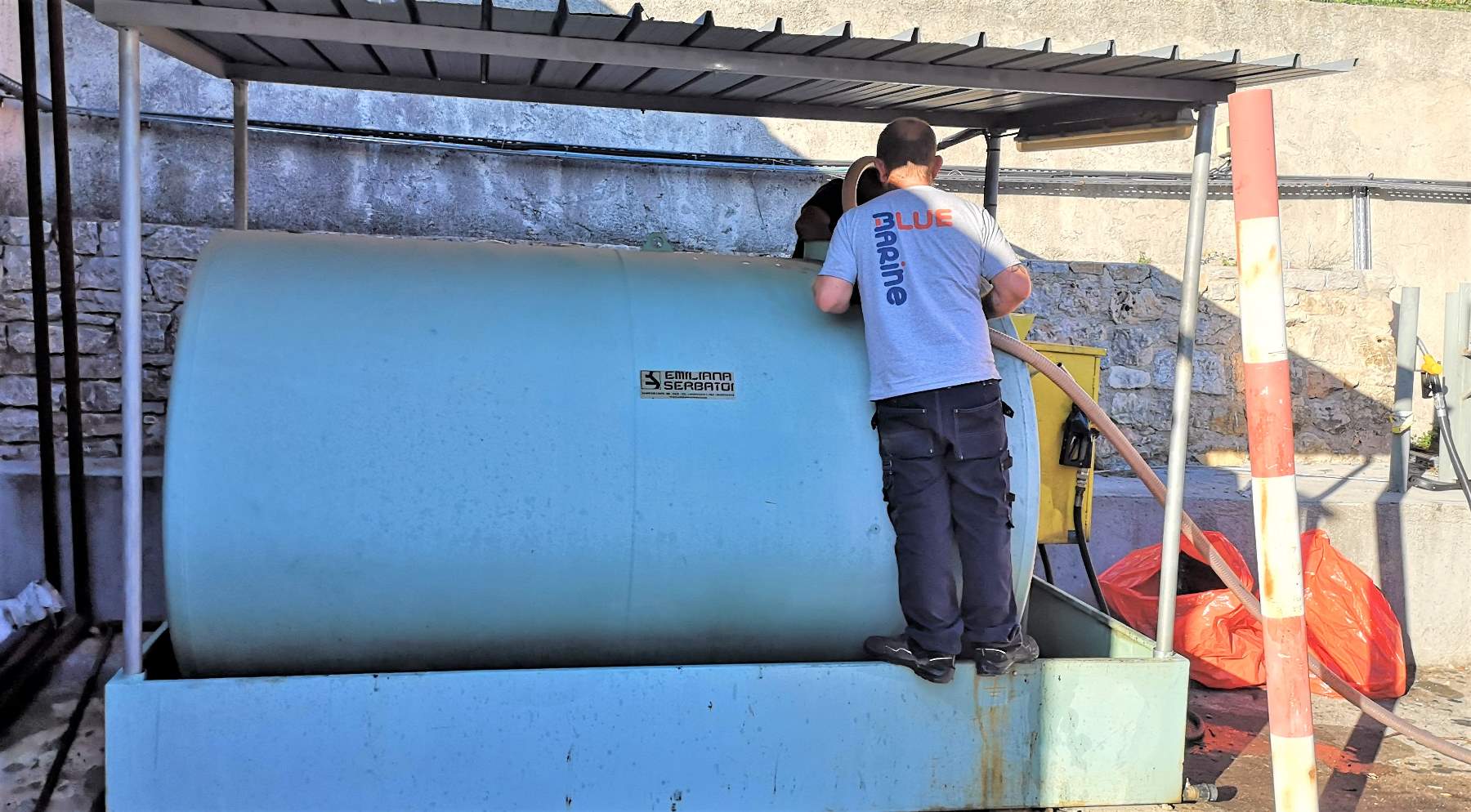
Cleaning domestic fuel tank
With time, bacteria and fungi create impurities buildups at the bottom of the tank and lead to gelatinous sediments (sludge).
Sediment can be the source of many problems : obstruction of suction strainers, filters, deterioration of the booster pump, nozzles
That’s why tanks need special maintenance.
Cleaning enables to avoid these problems and to check the condition of the bottom of the tank (corrosion).
The cleaning of the fuel tanks requires a high level of training and skills.
To do so, our technicians are properly trained and apply strict cleaning procedure and safety protocols.
Our procedure is based on high-pressure cleaning by using industrial degreaser, drying of the tank, and fuel return by centrifugation /
filtration.
We use high-tech equipment, in compliance with the regulation, gas detector (gas free test), ATEX gear (explosive environment), breathing
devices, dry suits, 24V lamps, etc.
The waste from cleaning is collected and transported to an authorised treatment centre. A waste tracking slip is issued so as to
ensure its traceability.
ADR

Regarded as hazardous and subject to ADR (Road Transportation of Hazardous Materials), this waste is a risk for man and for the environment. That’s why the collection, storage and treatment of the waste must be entrusted to qualified and skilled professional technicians.
Link to ADR details here.



